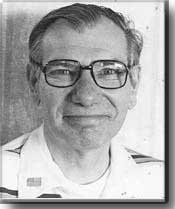 January 21, 1998
January 21, 1998
Haven't we left some of the simple things behind?In 1956, I broadcast the grand opening of the Anderson State Bank in their new facilities at Andrews and Main Street. I have broadcast the opening of the Hemingway tobacco market since 1949. It's 24 miles from Kingstree to Hemingway and for every inch of asphalt, there is a mile of memories. Many old friends who were as much a part of the landscape as tobacco are now history. Cooper Brothers Store and Cotton Gin. Once there was a post office at Cooper Brothers. Vera Owens' store. She didn't sell bottled water, but you could get a NeHi orange to wash down the bologna and cheese. Today, Indiantown High School is a brick ghost, but if you listen closely you can still hear the voices of generations of children who grew up at Nesmith, Henry, Indiantown, Roper's Crossroads, White Oak, and Bartell's. Okie Baxley's Grocery. I called him Okie Fenokie on the radio. I said his face looked like a swamp. Across the road at Brunson's Crossroads, Oneal Tanner ran a grocery store. Oneal was as rare as a sunburned steak and his voice was an octave higher than Smokey the Bear. When I cross the railroad track, my first stop is Hemingway Dry Cleaners. Marion Lee and his son Joe are behind the counter. Mr. Marion's hair is the color of buttermilk. His smile as friendly as an income tax refund. Marion Lee is tall and thin. Joe Lee is tall and thick. Mr. Marion looks like he's the victim of a famine. Joe looks like he caused it. Marion Lee came from Scranton in 1937 to work in the Hemingway School System. There's as much difference in Hemingway then and Hemingway now as a number two pencil and a computer. In 1937, Joe Chinnes ran the only eating place in Hemingway. The first time I saw Hemingway in 1949 there were more Lawrimores in Muddy Creek than eating places in Hemingway. There were almost as many Eaddys and Postons as Baptists and more pretty girls than anywhere else in Williamsburg County. It was small town USA--a town of front porches, where people never locked their doors. A radio occupied a place of honor in the living room and the school¹s biggest discipline problem was chewing gum. In 1949, you could buy nails from Huggins Hardware, a nickel ice cream cone at Tyson Curtis' drug store, ice from Sam Joe Haselden and a new Ford pick-up from Clarence, Ed or Willis Haselden. Hemingway had its own hospital--not a satellite from the county seat. Hemingway was special because the people were special W. B. "Billy" Harmon was Hemingway's mayor for 20 years. This is the fifth generation of Harmons in busines in Hemingway. There were James and George Stuckey, Edwin Huggins, Sr., Dewey Brewer, E. L. and Bub Eaddy, Merritt Morris, Wesley Kennedy, Jack Cockfield, Ronald Daniels, J.G. Ulmer, Charles Eaddy, Joe McAlister, Ed Ruffin, Charles Grimsley and Luther Daniels. Lots of people are responsible for Hemingway getting their own tobacco market but the man who deserves the most credit was the late, great Rufus Lawrimore. I wonder how many of you remember when I worked for Dexter Stuckey, Willard Nesmith and J.P. Askins. In the mid-1960s, they started radio station WKYB. Almost every night, Dexter Stuckey would call me, offering me a job. One night, he asked the magic question. What would it take? I told him. Dexter had a heart attack and I had a job at WKYB. I returned to Kingstree in 1970. When Mr. and Mrs. John Flagler were first married, John managed a grocery store in Hemingway for Sam Tomlinson. There were more cows than mobile homes, more mules than telephones. There're still a few people around who make Hemingway special. Talk to Pete Doster. Pete's vocabulary would melt the chrome on a trailer hitch. George Green is younger than dirt and three days older than Moses. Fifty years ago he went to work for Haselden Brothers. Prior to 1949, Hemingway had a depository. On April 7, 1949, B.B. and E.L. Anderson organized the Anderson State Bank. I wonder what many of these people would say if they could see Hemingway today. We all want to see our children grow up and enjoy the things we did without. But in spite of all the things we enjoy, all the things we have accumulated, haven't we left some of the simple things behind? In 1949, I was making $35 a week, and Hemingway had one eating place and one drug store, but it had some great people. It still does. Bark.Htm - 21 January 1998 |


